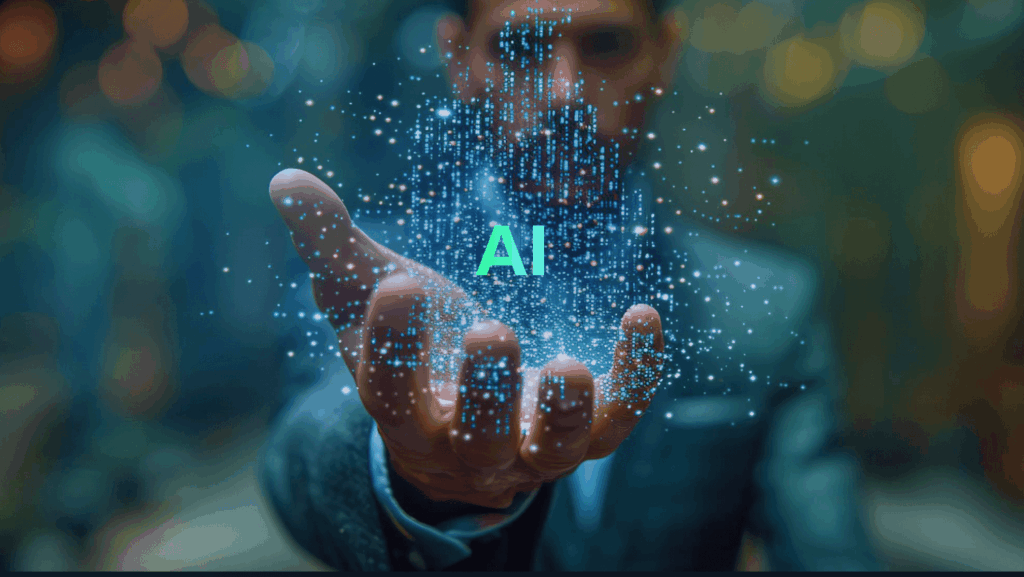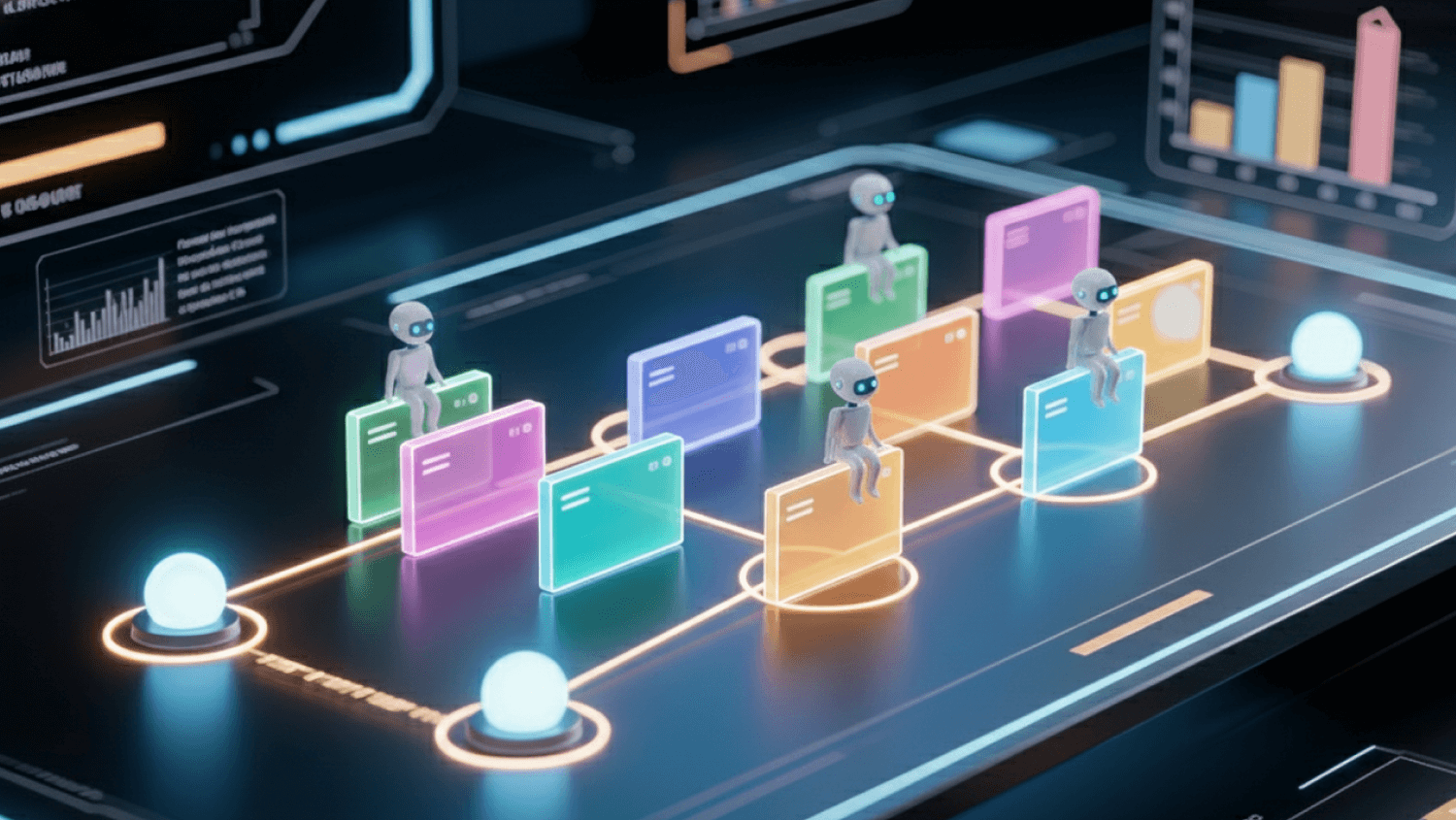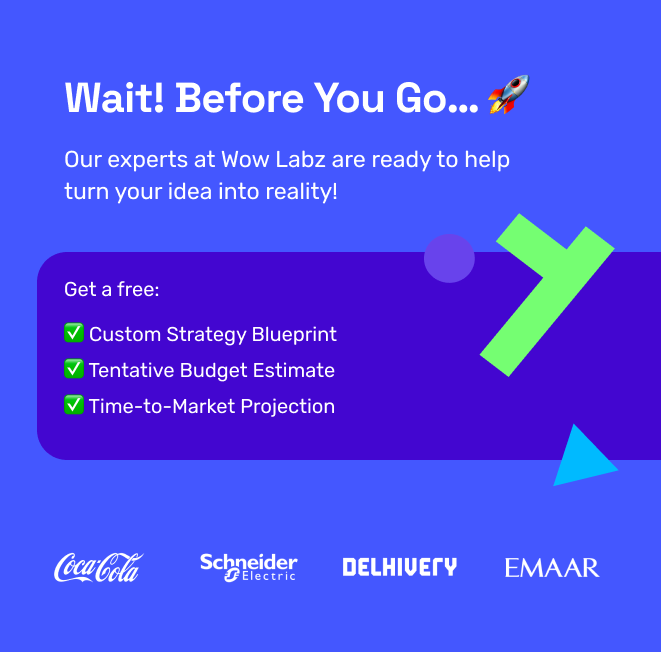With the inclusion of AI in almost all sectors of work, organizations are facing constant pressure to enhance efficiency and drive innovation for the growing market. A compelling statistic from Gartner highlights that 61% of organizations are currently engaged in AI pilot projects. This raises an important question: how can businesses effectively incorporate these advanced AI tools to transform their operations and how AI integrations are the key to the future?
AI integrations refer to the process of merging AI tools and systems with existing workflows, fostering smoother operations and enhanced decision-making. In this comprehensive guide, you’ll know about the real ROI of AI integrations, witness some AI use cases in business operations and learn how to choose the right ones for yo.
Let’s go!
What Are AI Integrations?
AI integrations involve embedding artificial intelligence capabilities into various business functions, optimizing processes, and enabling data-driven decisions. This growing trend is supported by numerous case studies, including a notable implementation at IBM, where integrating AI into supply chain management improved forecasting accuracy by over 30%. These integrations allow organizations to automate routine tasks and enhance analytics, creating a more efficient work environment. Enterprise AI integrations are not merely about adopting AI technologies; they focus on seamlessly embedding these technologies within your existing systems and workflows.
Why AI Integrations Matter for Modern Businesses
The adoption of AI integrations is becoming increasingly crucial for businesses looking to thrive in the digital age. Here are some key benefits:
- Efficiency: With AI integrations, organizations can automate time-consuming tasks, freeing up human resources for higher-value activities. For instance, companies using AI for document processing have reported up to 80% faster turnaround times.
- Data Insights: AI tools can analyze large datasets to uncover patterns and insights, guiding better decision-making. According to Forbes, organizations leveraging AI insights can boost annual profits by an average of 38%.
- Personalization: Businesses can leverage AI to deliver customized experiences to customers, enhancing engagement and satisfaction. Salesforce reports that 70% of consumers say a company’s understanding of their personal needs influences their loyalty.
- Enhanced Decision-Making: Enterprise AI integrations provide data-driven analysis, reducing risks and improving strategic choices. A case in point is Harvard Business Review’s example of a retail company that experienced a 20% increase in sales through AI-optimized pricing strategies.
- Cost Reduction: By automating tasks and improving efficiency, organizations can significantly lower operational costs.
The benefits of AI in business operations are manifold, and understanding them is key to implementing successful AI strategies. To illustrate these benefits, consider the following comparison:
| Before AI Integration | After AI Integration |
|---|---|
| Manual data entry and report generation | Automated reports and analytics |
| High error rates in customer interactions | Increased accuracy and faster responses |
| Time-consuming decision-making processes | Real-time insights driving quick decisions |
| High operational costs | Reduced costs through streamlined processes |
Top AI Integrations to Supercharge Business Operations
AI is transforming various business functions through integrations with tools and platforms that enhance operations. Here’s an overview of some leading AI integrations:
- Zapier: Facilitates automation among over 2,000 apps, streamlining workflows. Case studies reveal that businesses using Zapier can save more than 50 hours a month on manual work.
- HubSpot: Offers AI-driven marketing automation solutions for personalized campaigns, evidenced by a company that experienced a 30% lift in lead conversion through automated email marketing.
- Salesforce Einstein: Enhances customer relationship management (CRM) with predictive analytics, leading to businesses reducing customer churn by as much as 25%.
- OpenAI API: Enables intelligent chatbots and customer support solutions. A retail brand shared that using AI for customer inquiries resulted in a 50% reduction in response time.
Each AI integration serves unique purposes and can be customized to fit the needs of both enterprises and startups.
CRM & Sales AI Integrations
Integrations like Salesforce Einstein enhance customer relationship management by predicting customer behavior and automating follow-up tasks. For example, predictive lead scoring dramatically helps sales teams prioritize leads more efficiently, as shown by a Salesforce study where businesses reported a 27% increase in revenue in their first year of implementation.
Marketing & Customer Engagement AI Integrations
AI tools optimize marketing campaigns by analyzing customer data for better targeting. Tools like HubSpot and Mailchimp can personalize emails based on user behavior, resulting in higher open and conversion rates. A recent analysis highlighted that brands leveraging AI-driven personalization saw a 20% increase in overall sales.
Operations & Workflow Automation
Platforms like Zapier automate repetitive tasks. For example, integrating invoicing tools with payment systems can ensure timely payments without manual intervention, resulting in a Zapier report that indicates businesses saved an average of $10,000 annually through operational automation.
HR & Talent Management AI Integrations
AI integrations support recruitment by automating resume screening and providing data-driven insights into candidate qualifications. Systems like Workday leverage AI for optimal talent allocation. In fact, organizations that implemented AI for recruitment saw a 37% reduction in hiring time, according to a BambooHR study.
Data Analytics & Business Intelligence
Tools such as Tableau utilize AI to transform raw data into actionable insights, enabling better decision-making throughout the organization. A notable example can be observed in a company that leveraged Tableau to visualize sales trends, which led to a strategy adjustment that increased quarterly profits by 15%.
Finance & Risk Management Integrations
AI-powered finance tools help in detecting fraud, assessing risks, and automating routine transactions, significantly bolstering operational efficiency. According to research from IBM, companies employing AI for fraud detection saved an estimated $2 million annually through early fraud detection mechanisms.
Industry-Specific Integrations
Healthcare: AI can optimize patient scheduling and predictive analytics for patient care, as shown by a case in which a healthcare provider enhanced patient satisfaction scores by 40% through AI scheduling.
Retail: Integrations can enhance inventory management and customer recommendations. For instance, retailers utilizing AI-driven analytics report improved stock turnover rates by 30%.
Industry-specific AI integrations ensure that businesses can deploy relevant tools to meet distinct challenges in their sectors.
Tap into our expert talent pool to build cutting-edge AI solutions.
How to Choose the Right AI Integrations
When choosing AI integrations for enterprises, consider the following criteria:
- Alignment with Business Goals: Ensure the integration resonates with your core objectives. An example is a logistics company integrating route optimization AI, leading to a 15% decrease in fuel costs.
- Scalability: Choose solutions that can grow with your organization. A well-known brand shared their experience with a scalable AI CRM that adapted to their growing customer base and increased sales efficiency by 25%.
- Data Security: Verify compliance with data protection regulations, particularly in sectors like finance where sensitive information is handled.
- Integration Cost: Assess the total cost of ownership beyond initial implementation, including potential savings identified through existing integrations.
- Vendor Support: Opt for providers that offer ongoing support and resources to maximize the potential of your AI integrations.
It is beneficial to follow a structured framework such as “Assess → Pilot → Integrate → Scale” to guide the implementation of AI integrations effectively. For example, one manufacturing firm successfully navigated this process by first piloting AI for predictive maintenance, leading to a 20% reduction in downtime.
Common Challenges in AI Integration
While AI integrations have the potential to transform how businesses operate, the journey toward successful implementation is rarely straightforward. Organizations often face a range of operational, technical, and cultural hurdles that can delay or derail adoption. Below are some of the most common challenges — and practical ways to overcome them.
1. Data Quality Issues
AI systems are only as powerful as the data they’re trained on. Poor-quality, inconsistent, or incomplete data can severely limit the effectiveness of AI models, leading to unreliable insights or flawed automation.
How to overcome:
Businesses should invest in data cleansing, normalization, and validation frameworks before deploying AI-powered business solutions. Implementing dual-layer data quality systems — combining automated validation tools with human review — has helped many enterprises improve data reliability by over 50%, ensuring AI systems make smarter, more consistent decisions.
2. Lack of Interoperability
One of the biggest roadblocks in AI adoption arises when existing software, databases, or legacy systems can’t “talk” to each other. Disconnected tech ecosystems make it difficult to integrate AI tools seamlessly across departments.
How to overcome:
Opt for AI platforms that support open APIs, standardized data formats, and modular architecture. This ensures interoperability between tools and smooth data flow across systems. Companies that have prioritized open-architecture integration frameworks have reported notable improvements in operational efficiency and scalability post-implementation.
3. Skill Gaps in Teams
Even the best AI strategy can falter if the team lacks the technical expertise to execute it effectively. Data science, model deployment, and AI governance require specialized skills that many organizations are still developing.
How to overcome:
Invest in upskilling initiatives through structured workshops, hands-on training, and AI certification programs. Partnerships with educational institutions or online platforms can accelerate learning. Research indicates that teams trained in AI technologies are up to 45% more proficient in managing, interpreting, and optimizing AI tools, leading to faster ROI and smoother adoption.
4. Change-Management Resistance
Introducing AI often reshapes workflows, responsibilities, and even job roles — changes that can trigger resistance from employees. Without a culture that embraces innovation, AI adoption can stall despite the best technical setup.
How to overcome:
Promote transparent communication and inclusive decision-making throughout the integration process. Encourage collaboration between leadership, technical teams, and end-users to build trust and ownership. Companies that involve employees early and address their concerns have seen AI tool adoption rates increase by over 60%, proving that cultural readiness is as important as technical readiness.
ROI of AI Integrations: How to Measure Success
Measuring the success of your AI integrations is critical to understanding their impact. Consider tracking the following metrics:
- Time Saved: Calculate the reduction in time spent on manual tasks, utilizing time-tracking tools to quantify improvements effectively.
- Cost Reduction: Assess savings resulting from increased efficiency and automation, as one retailer noted an annual saving of $500,000 after implementing AI-driven pricing strategies.
- Accuracy Improvements: Monitor error rates pre- and post-integration, such as a logistics company that cited a 75% drop in shipping errors.
- Customer Satisfaction: Survey customers to evaluate improvements in service levels, revealing insights that direct strategy adjustments.
- Revenue Uplift: Look for increased sales and profitability attributed to AI systems. A marketing firm shared an increase of 35% in sales leads attributed directly to AI-enhanced targeting.
For example, a study revealed that “An AI-enabled CRM improved lead conversion by 30% in just six months.” Understanding the ROI of AI integrations provides actionable insights into what works for your business.
Future Trends in AI Integrations
Looking ahead, several trends are shaping the landscape of AI integrations:
- Predictive Automation: Businesses are increasingly adopting predictive models to automate complex decision tasks. McKinsey suggests that predictive automation could save companies billions annually.
- AI Agents: These virtual assistants are becoming commonplace in customer service and support roles, with businesses reporting a 70% reduction in customer wait times.
- Embedded Generative AI: This technology is poised to directly influence software development and content creation, reflecting a paradigm shift in how digital products are created.
- Cross-system Learning: AI systems that learn from one another enhance overall capabilities, with collaborative AI networks leading the charge in innovation.
As organizations prepare for the future, considerations surrounding privacy-preserving AI and robust governance frameworks will be essential to maintain trust and accountability. Engaging with regulation experts can mitigate compliance risks as AI technology continues to evolve.
Next Steps to Take with AI Integrations
In summary, AI integrations present a unique opportunity for businesses to enhance their operations, streamline workflows, and deliver better customer experiences. As you explore AI options, consider the specific needs of your organization and the potential ROI of each integration.
Start by mapping out the key business functions that stand to gain the most from AI integration. Engage your teams to assess current workflows and identify pilot projects with the potential for meaningful impact. Leverage the proven methodologies and insights developed by Wow Labz, a pioneer in AI-driven development, as a framework for shaping your strategy. Together, let’s build the future of intelligent, AI-powered business solutions.
If you have any questions or would like to discuss this further, please contact us.
Tap into our expert talent pool to build cutting-edge AI solutions.








